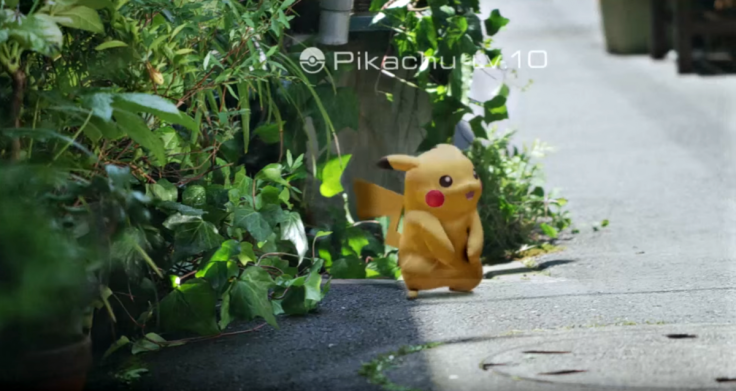Pokemon Go dev Niantic discusses how augmented reality mobile game will work in small towns

Next year will see the release of Pokémon Go, a new mobile game bringing the famed RPG series not just to mobile devices but to the real world. The game will use location data to populate the entire planet, from Bognor Regis to the Panama Canal, with Nintendo's Pocket Monsters.
It is being developed by Niantic, developers of location-based game Ingress, whose CEO John Hanke spoke to Venture Beat about the challenges of development, their partnership with Nintendo, and how items and Pokémon will be distributed in-game.
"Our goal is to make it so you can walk out of the house and within five minutes, you can find Pokémon. It may not be the most rare Pokémon in the world, but there'll be a population of Pokémon living near all our players," said Hanke.
"Pokémon will live in different parts of the world depending on what type of Pokémon they are. Water Pokémon will live near the water. It may be that certain Pokémon will only exist in certain parts of the world. Very rare Pokémon may exist in very few places. But you can trade."
This raises a few questions - for example, will rare Pokémon in an individual's immediate vicinity appear as they play the game more or will players be stuck living in the middle of a Rattata nest unless they decide to venture out to find more Pokémon?
Trading, as Hanke explains, will be key. "If you live in a place with lots of water Pokémon and you come to an event — we have these Ingress events that are getting bigger and bigger. We'll have our biggest weekend ever on Saturday. We'll have events for Pokémon as well. Those are competitive, but they can also be places to trade stuff with other players.
"Pokémon trading is going to be huge. You can't get all of them by yourself. If you want all of them you'll have to trade with other players. Or you have to be someone who takes time off work and travels the world for a year. There may be people who do that."
Another issue is how you cover an entire planet in Pokémon but ensure anyone, anywhere, has a good experience worthy of the Pokémon name.
"We've learned a lot on those fronts with Ingress," says Hanke. "Even if you're in a small town — I grew up in a town of 1,000 people in Texas. We had that as a design goal. If we're going to build a game that works with location, it has to be fun for people anywhere to play, in small towns as well as San Francisco. If we designed something that only worked in San Francisco, it wouldn't be a real success. We wanted it to work globally.
"You do things like enabling asynchronous play. If someone passes through that town on a trip to somewhere else, they interact with the locations there. That makes the place feel alive, even if you didn't match with them head-to-head."
Pokémon Go was announced in September with the trailer above, which immediately garnered a lot of attention and got people very excited. The game will be released on iOS and Android in 2016, to coincide with the series' 20<sup>th anniversary.
For all the latest video game news follow us on Twitter @IBTGamesUK.
© Copyright IBTimes 2025. All rights reserved.



















